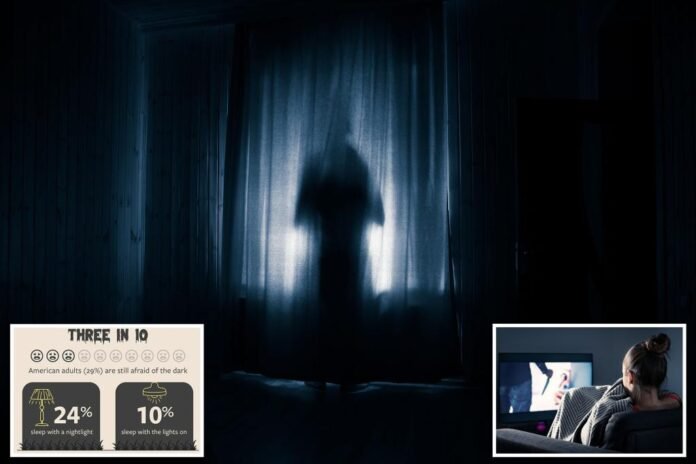New research shows that almost one‑third of American adults still feel uneasy when the lights go out. In a recent online survey of 2,000 adults, 29 % admitted to having a fear of the dark, with men reporting a slightly higher rate (33 % vs. 26 % for women).
How people deal with that fear is telling. About a quarter of the respondents—24 %—sleep beside a nightlight, and an additional 10 % leave their bedroom lights on. The numbers split by gender: 15 % of men and 7 % of women keep lights on. A small but notable 11 % of participants still keep a stuffed animal or another comfort item in bed.
The survey, run by Talker Research for Avocado Green Mattress, also looked at how scary movies and the approach of Halloween can amplify nighttime anxiety. Almost a third of Americans (28 %) say they “love” horror films and try to watch as many as they can.
Men are more enthusiastic—33 % admit they love horror—while 21 % of women say they “hate” them. Women report being scared during and after a film at a rate of 41 % vs. 28 % for men. However, men are more likely to wake up with nightmares: 24 % say they “always” or “often” have them after a scary movie, compared with 13 % of women.
Nighttime disruptions don’t stop at nightmares. After a horror movie show, 28 % of respondents wake up during the night, 22 % report lower‑quality sleep, and 12 % sleep fewer hours than usual. “During October’s spooky season—horror movies, haunted houses, and all the Halloween hype—it’s no surprise people aren’t sleeping as well,” says Laura Scott, director of brand marketing at Avocado Green Mattress. “People may stay up later to celebrate, and the data shows their sleep can suffer as a result.”
The survey also touched on the end of Daylight Saving Time (DST), which ends Sunday, Nov. 2. Many people seemed unsure how it would affect their rest. Thirty–two percent incorrectly believed they’d lose an hour of sleep, 13 % were uncertain, and 20 % said they’d need more than a week to adjust.
While 39 % felt the extra hour of night light was worth it, seven‑in‑ten (62 %) would love to do away with the time shift entirely. Last year’s study found similar numbers: 35 % found the trade‑off worthwhile, and 59 % wanted DST abolished.
Scott adds that “preparing for the DST change involves good sleep habits before the clocks go back, and moving the clock right after you wake up to help your brain reset.”
Key takeaways for the general reader: fear of the dark is still common, yet many adults find comfort in light or nighttime rituals. Horror movies can heighten that fear and affect sleep quality, especially for men who report more nightmares.
The approach of Halloween and DST can further stress the body’s sleep patterns. For those looking to improve sleep, keeping a nightlight or a comforting item, watching horror in moderation, and tending to nighttime routines can help.
The study, conducted between September 17 and 22, 2025, reflects a snapshot of American sleep habits and fears in the late summer and early fall—a time when the lights go dark and crowds head to the theater to watch the next big fright.
Source: New York Post
Stay informed on all the latest news, real-time breaking news updates, and follow all the important headlines in world News on Latest NewsX. Follow us on social media Facebook, Twitter(X), Gettr and subscribe our Youtube Channel.



